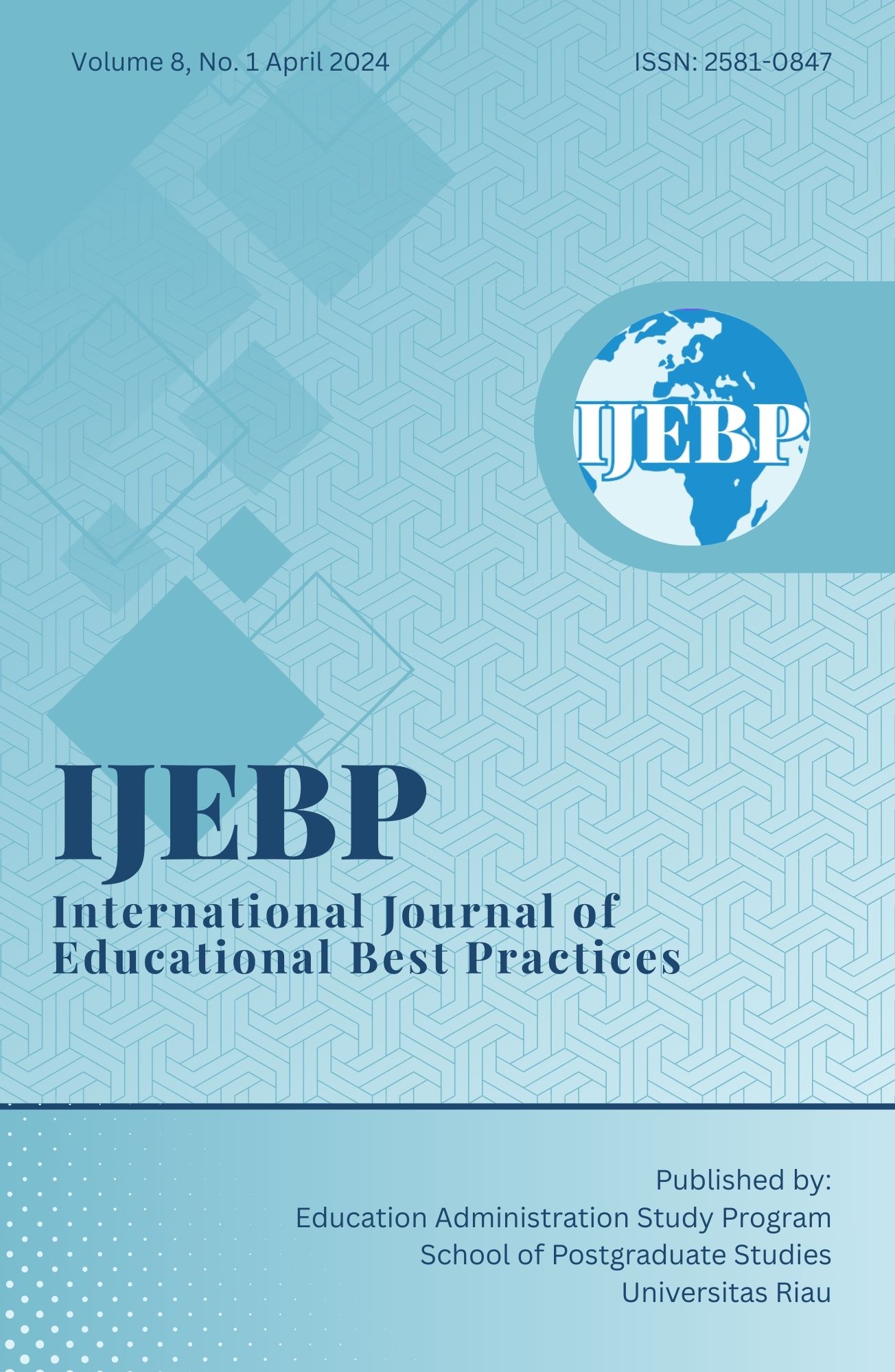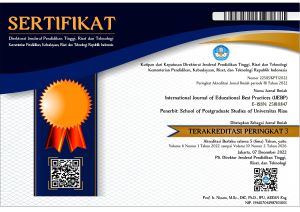POSITIVE INTERDEPENDENCE AND PROMOTIVE INTERACTION IN ONLINE COOPERATIVE LEARNING TO SUPPORT WRITING ACHIEVEMENT
DOI:
https://doi.org/10.31258/ijebp.8.1.38-56Keywords:
Positive interdependence, promotive interaction, online cooperative learning, writing achievementAbstract
This study aimed to get a clear description of how positive interdependence and promotive interaction as two of five key elements in cooperative learning account for the success of students’ achievement in essay writing. A mixed method design was employed to describe if the characteristics of both positive interdependence and promotive interaction were found in the activities performed by the groups and whether these two elements had the potential to support students’ achievement in essay writing. Using Google Classroom as the learning management system to mediate the learning process, there were 52 undergraduate students participated in this study who were divided into 10 small groups consisting of 5-6 students. Data required for this study was collected from both written records of students’ activities in online discussions and the scores achieved by the groups on each task. The findings showed an interesting fact that the characteristics of both of the elements were easily found in all parts of the activities performed by all groups in the online discussions. However, the average scores of their works indicated that there was not any meaningful improvement from the first to the last activities. The result implied that although cooperative learning is possible to be applied in an online classroom setting, it needs proper preparation and well-designed writing tasks to make it possible to support students’ writing achievement.
References
Al-Jarf, R. (2022). Interaction analysis in online learning communities: The student leader. Journal of Learning and Development Studies, 2(2), 22–38. https://doi.org/10.32996/jlds.2022.2.2.4
Creswell, J. W. (2012). Educational research: Planning, conducting, and evaluating quantitative and qualitative research.
Pearson. https://doi.org/10.1017/CBO9781107415324.004
Delgado, M. A., & Fonseca-Mora, M. C. (2010). The use of co-operative work and rubrics to develop competences. Education for Chemical Engineers, 5(3), e33-e39. https://doi.org/10.1016/J.ECE.2010.05.002
Deutsch, M., Coleman, P. T., & Marcus, E. C. (2006). The handbook of conflict resolution: Theory and practice (Second Ed; M. Deutsch, P. T. Coleman, & E. C. Marcus, eds.). John Wiley & Sons, Inc.
Fareed, M., Ashraf, A., & Bilal, M. (2016). ESL learners’ writing skills: Problems, factors and suggestions. Journal of Education & Social Sciences, 4(2), 83–94. https://doi.org/10.20547/jess0421604201
Gillies, R. M. (2016). Cooperative learning: Review of research and practice. Australian Journal of Teacher Education, 41(3), 39–54. https://doi.org/10.14221/ajte.2016v41n3.3
Hancock, D. (2004). Cooperative learning and peer orientation effects on motivation and achievement. Journal of Educational Research, 97(3), 159–168. https://doi.org/10.3200/JOER.97.3.159-168
Heaton, J. (2022). "*Pseudonyms are used throughout": A footnote, unpacked. Qualitative Inquiry, 28(1), 123–132.
https://doi.org/10.1177/10778004211048379
Jacobs, G., & Seow, P. (2015). Cooperative learning principles enhance online interaction. Journal of International and Comparative Education, 4(1), 28–38. https://doi.org/10.14425/00.76.07
Johnson, D. W., & Johnson, R. T. (2014). Cooperative learning in 21st century. Anales de Psicologia, 30(3), 841–851. https://doi.org/10.6018/analesps.30.3.201241
Laal, M. (2013). Positive Interdependence in Collaborative Learning. Procedia - Social and Behavioral Sciences, 93(October 2013), 1433–1437.
https://doi.org/10.1016/j.sbspro.2013.10.058
Martinez, C. T., Kock, N., & Cass, J. (2011). Pain and pleasure in short essay writing: Factors predicting university students' writing anxiety and writing self‐efficacy. Journal of Adolescent & Adult Literacy, 54(5), 351-360.
Nam, C. W., & Zellner, R. D. (2011). The relative effects of positive interdependence and group processing on student achievement and attitude in online cooperative learning. Computers and Education, 56(3), 680–688. https://doi.org/10.1016/j.compedu.2010.10.010
Nastasi, B. K., & Clements, D. H. (1991). Research on cooperative learning: Implications for practice. School Psychology Review, 20(1), 110–131.
https://doi.org/10.1080/02796015.1991.12085536
Slavin, R. E. (1989). Research on cooperative learning: An international perspective. Scandinavian Journal of Educational Research, 33(4), 231–243. https://doi.org/10.1080/0031383890330401
Yassin, A. A., Razak, N. A., & Maasum, N. R. M. (2018). Cooperative learning: General and theoretical background. Advances in Social Sciences Research Journal, 5(8), 642–654. https://doi.org/10.14738/assrj.58.5116
Zhang, Y. (2010). Cooperative language learning and foreign language learning and teaching. Journal of Language Teaching and Research, 1, 81–83. https://doi.org/10.4304/jltr.1.1.81-83





